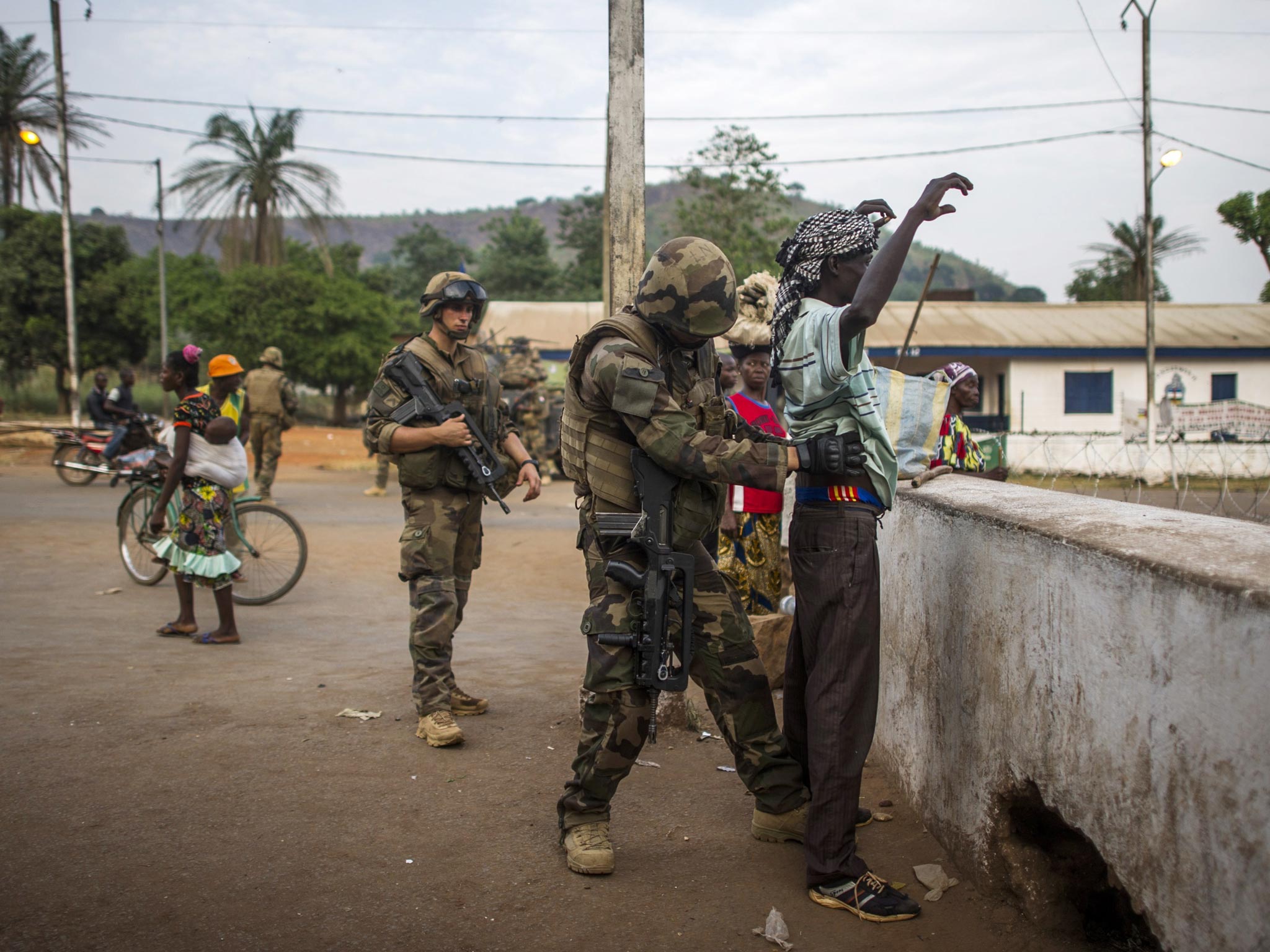CAR: French public fears ‘mission creep’ as operation drags on
François Hollande has sought to refocus attention from his private life on to his reform agenda

When President François Hollande ordered French troops into the Central African Republic ostensibly to avert a “genocide” by Muslim rebels who had seized power, the operation was named “Sangaris” after a butterfly to reflect its intended brief life.
Almost three months later, the French parliament is to vote tomorrow on extending the operation, amid claims the government underestimated the potential for a backlash by the Christian majority the troops were sent to protect.
The Sangaris commander, General Francisco Soriano, insisted on Monday that the increasingly unpopular operation had not become bogged down. “People should be aware that we can’t settle in two months 20 years of crisis in a country which has a state that has not responded to its citizens’ aspirations and where everything has to be rebuilt,” he told Europe 1 radio.
Opinion polls have shown that the operation is not popular with the French public which fears that the mission, originally authorised for four months, could last much longer. On 14 February the Defence Minister, Jean-Yves Le Drian, sent 400 additional troops to the impoverished former French colony in the heart of Africa, bringing the total to 2,000. Six thousand soldiers from the African Union have also been deployed, while another 1,000 EU troops have been promised.
The country’s interim president, Catherine Samba Panza, who took over last month following the expulsion of the Séléka militias from the capital, Bangui, has asked the foreign forces to stay until elections in February next year.
And Ban Ki-moon, the UN Secretary-General who backs a plan for a UN peacekeeping force, last week urged “rapid reinforcement” of the French and African troops with an additional 3,000 soldiers to prevent sectarian violence spiralling into genocide. Marielle Debos, a lecturer in political science at Nanterre University, said in a column in Le Monde that talk of genocide was inappropriate and claimed the French government had failed to anticipate the reversal of the balance of power since Sangaris began. The removal of the Séléka, who ousted President François Bozize last March, strengthened the Christian and animist militia known as the anti-balaka.
Amid reports of a surge of revenge killings targeting Muslim civilians, Amnesty International last Friday reported an alleged massacre committed by the anti-balaka in Bougere, west of Bangui. “Nothing prepared us for what we found. The streets were littered with bodies. We counted 21 including three women and even a baby. Dogs were feeding on some of the corpses,” said Amnesty. “Some of the male victims were partially burned. The feet of one man had been tied together, evidence that he had been taken prisoner before being executed. The residents said that there were more in the outskirts of the town.”
Mr Ban last week warned of a coming “de facto” partition of the country. Two thousand people have been killed in the conflict and almost a million people – or a quarter of the population – have been forced to leave their homes.
The parliamentary vote on extending the French mission comes as President Hollande is attempting to refocus attention away from his love life and on to domestic issues such as tax reform. A poll published on 16 February showed that his personal approval ratings had sunk to 20 per cent, the lowest of any president since 1958.
In the light of the interim government’s request, the opposition centre-right UMP has concerns about mission creep. “What is the point of this mission?” asked UMP deputy Pierre Lellouche during a visit to the Central African Republic. Centrist deputy Philippe Folliot said “the nature of the French operation is changing de facto. This is causing questions about the financing of the operation, and the need for it to become a proper multinational operation”.
Subscribe to Independent Premium to bookmark this article
Want to bookmark your favourite articles and stories to read or reference later? Start your Independent Premium subscription today.

Join our commenting forum
Join thought-provoking conversations, follow other Independent readers and see their replies